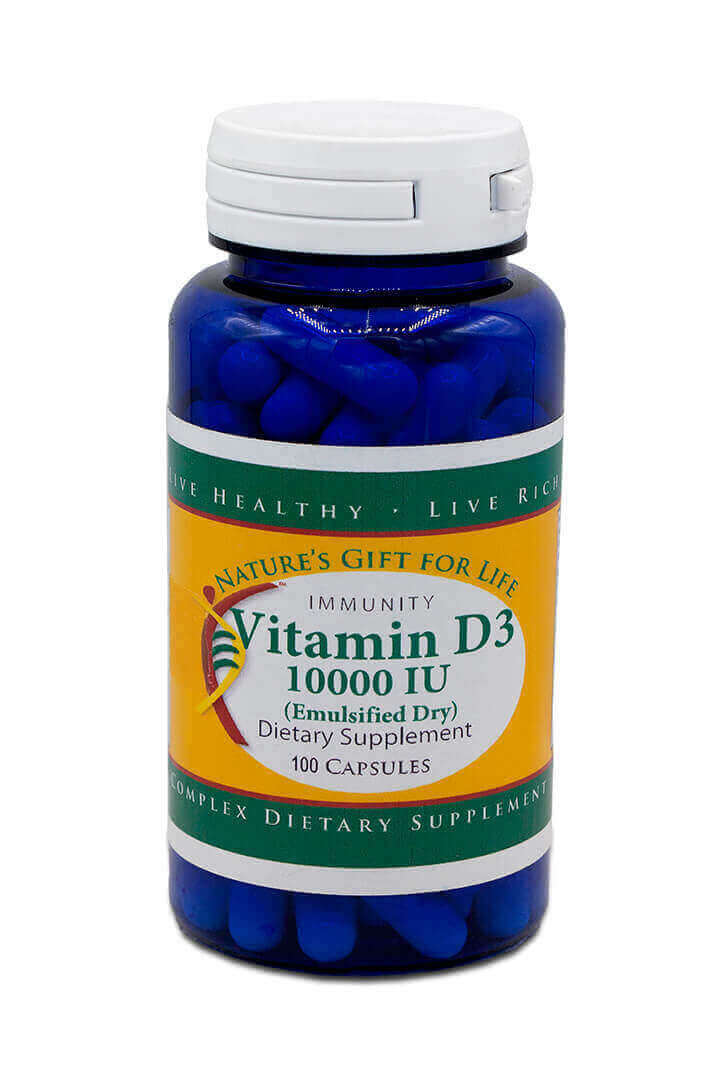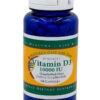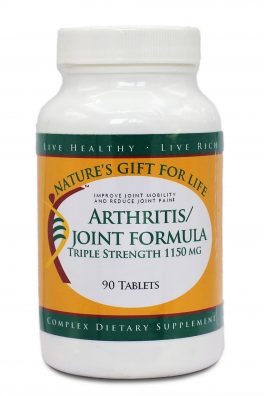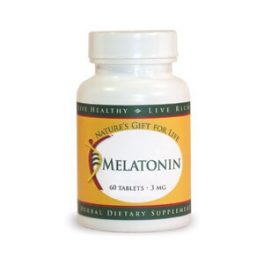Vitamin D3 5000IU
2 in stock
- Effective in protecting the eyes
- Decrease the likelihood of developing cataracts
- Helps the eyes to better adapt to both bright and low lighting
- Reduces the risk of developing macular degeneration many eye related problems
>>>Read More
34,945CFA
2 in stock
Benefits:
- Bone health
Strong bones are a result of good vitamin D3 intake because it helps regulate and control the body’s ability to absorb phosphorus and calcium two compounds that provide density and strength to the skeletal system and teeth.
- Immune booster
As the vitamin D receptor is expressed on immune cells (B cells, T cells and antigen presenting cells) and these immunologic cells are all are capable of synthesizing the active vitamin D metabolite, vitamin D has the capability of acting in an autocrine manner in a local immunologic milieu. Vitamin D can modulate the innate and adaptive immune responses. Deficiency in vitamin D is associated with increased autoimmunity as well as an increased susceptibility to infection.
- Insulin control
Vitamin D3 stimulates the pancreas and triggers the process to make insulin. This is key for managing blood sugar levels more effectively and can help diabetics better control the disease.
- Cancer prevention
Studies have shown that the increased vitamin D3 can help prevent the development of certain cancers, while other reports show promise that combining the nutrient with more fiber can reduce the risk of developing polyps that could lead to colon cancer.
- Lower blood pressure
A study from Boston University found that those with high blood pressure experienced a drop in numbers when vitamin D levels were increased. D3 actively reduces the concentration of renin, an enzyme secreted by the kidney that has an effect on blood vessels.
- Hearth health
Heart function can also be impacted by the presence of vitamin D. In two studies, low levels of vitamin D were correlated to an increased likelihood of a heart attack. Though there isn’t a clear reason why, some researchers believe that vitamin D acts as a “heart tranquilizer,” improving cardiovascular endurance and keeping heart muscle cells from growing too large. This in turn prevents thickening of the walls of the ventricles, which can block blood flow and cause a heart attack.
- Mood
One of the most significant benefits to vitamin D3 though is its impact on mood. Many people suffer from seasonal affective disorder and generally feel happier when the sun is shining because of the synthesis of the vitamin that happens with direct exposure to UVB rays. Increasing levels of vitamin D is not only a pick-me-up but could effectively help to reduce the symptoms of clinical depression. Other treatments may be needed as well, but first ensuring proper absorption of the vitamin is critical.
- Anti-inflammation
vitamin D has recently been found to play an important role in the modulation of the immune/inflammation system via regulating the production of inflammatory cytokines and inhibiting the proliferation of proinflammatory cells, both of which are crucial for the pathogenesis of inflammatory diseases.
- The brain and cognition
Vitamin D is neuroprotective, It is involved with regulating many genes important for brain function. Although vitamin D is thought of as a vitamin, it acts as a neurosteroid and plays important roles in the brain.
CHOLECALCIFEROL
Vitamin D is a fat-soluble vitamin. It has 2 main forms: D2 (ergocalciferol) and D3 (cholecalciferol) (The naturally occurring form and the form used for supplementation. Vitamin D deficiency is common worldwide. It is a common cause of rickets and osteomalacia, but these disorders may also result from other conditions, such as chronic kidney disease, various renal tubular disorders, familial hypophosphatemic (vitamin D–resistant) rickets, chronic metabolic acidosis, hyperparathyroidism, hypoparathyroidism, inadequate dietary calcium, and disorders or drugs that impair the mineralization of bone matrix.
Vitamin D deficiency causes hypocalcemia, which stimulates production of parathyroid hormone (PTH), causing hyperparathyroidism. Hyperparathyroidism increases absorption, bone mobilization, and renal conservation of calcium but increases excretion of phosphate. As a result, the serum level of calcium may be normal, but because of hypophosphatemia, bone mineralization is impaired.
Vitamin D3 is synthesized in skin by exposure to direct sunlight (ultraviolet B radiation) and obtained in the diet chiefly in fish liver oils and salt water fish (see table Sources, Functions, and Effects of Vitamins). In some developed countries, milk and other foods are fortified with vitamin D. Human breast milk is low in vitamin D, containing an average of only 10% of the amount in fortified cow’s milk.
Vitamin D levels may decrease with age because skin synthesis declines. Sunscreen use and dark skin pigmentation also reduce skin synthesis of vitamin D.
Vitamin D is a prohormone with several active metabolites that act as hormones. Vitamin D is metabolized by the liver to 25(OH)D (calcifediol, calcidiol, 25-hydroxycholecalciferol, or 25-hydroxyvitamin D), which is then converted by the kidneys to 1,25-dihydroxyvitamin D (1,25-dihydroxycholecalciferol, calcitriol, or active vitamin D hormone). 25(OH)D, the major circulating form, has some metabolic activity, but 1,25-dihydroxyvitamin D is the most metabolically active. The conversion to 1,25-dihydroxyvitamin D is regulated by its own concentration, parathyroid hormone (PTH), and serum concentrations of calcium and phosphate.
Vitamin D affects many organ systems but mainly it increases calcium and phosphate absorption from the intestine and promotes normal bone formation and mineralization.
Vitamin D deficiency may result from the following:
- Inadequate exposure to sunlight
- Inadequate intake of vitamin D
- Reduced absorption of vitamin D
- Abnormal metabolism of vitamin D
- Resistance to the effects of vitamin D
The deficiency can cause muscle aches and weakness, bone pain, and osteomalacia, weakened immune system.
PRESENTATION: 100 capsules per bottle
Serving size 2 capsules serving per containing 100 | ||
Ingredients | Amount per serving | % daily value |
Vitamin D3 | 125mg (10000IU) | 625% |
Other ingredients: Gelatin, Rice powder
INDICATION
Osteoporosis, Seasonal affective disorder (SAD), Psoriasis, Dementia or other cognitive disorders, Older adults, Breastfed babies, People with darker skin, Obese individuals (or those who’ve had gastric bypass surgery),People with conditions such as cystic fibrosis, Crohn’s disease, or liver disease, some respiratory illnesses, inflammatory disease.
POSOLOGY
Adults take two capsules per day with food
SUBSTITUTES: Ng4l vitamin A & D. Ng4l cal mag Zn, Ng4l ultraman/ woman, Ng4l cod liver oil, Ng4l ultra coral calcium supreme.
Note: vitamin D is a fat soluble vitamin and should be taken alongside a meal.v
| Weight | 91 g |
|---|
Based on 0 reviews
Be the first to review “Vitamin D3 5000IU” Cancel reply
Related products
-
All Products, Special Products
Ashwagandha 1500mg
0 out of 5(0)- The combination of Whey protein with your diet promotes the loss of weight
- Cardiovascular health: Whey protein lowers high blood pressure by inhibiting the activity of the angiotensin-converting enzyme
- Cancer: Whey protein can increase the action of enzymes that provide anti-inflammatory support and anti-tumor activity
- Diabetes: Whey protein is low in carbohydrates and fats and contains more quality protein than other protein sources
- promotes muscle formation and maintenance and can help with maintain strong and healthy bones.
- HIV/AIDS and Immunity: The addition of a dietary supplement in amino acids can be supportive if digestion is compromised. It is a very easy to use protein mixture digest by people living with HIV/AIDS.
>>>Read More
SKU: n/a -
All Products, Special Products
Triple Strength Arthritis Joint Formula
0 out of 5(0)- Triple Strength Arthritis Joint Formula
- Acts as an anti-inflammatory (inflammation control) and helps reduce the pain of those with arthritis
- Helps with cartilage repair
- Improves and promotes joint health and function
>>>Read More
SKU: n/a -
All Products, Special Products
Melatonin 3mg
0 out of 5(0)- Effective to get rid of the Jet Lag
- Fights gainst insomnia.Melatonin is best and the surest of the inductors of sleep available
- Melatonin neutralizes the effects of stress
- Many studies show that Melatonin protects from cancer and the toxic effects of chemotherapy.
>>>Read More
SKU: n/a -
All Products, Special Products
Women Secret V
0 out of 5(0)- Stimulates sexual desire in men and women
- Increases the nervous response to sexual arousal
- Improves sperm quality in men
- Improves vaginal tone and elasticity.
- Prevents sexual disorders and bone density loss due to menopause
>>>Read More
SKU: n/a







There are no reviews yet.